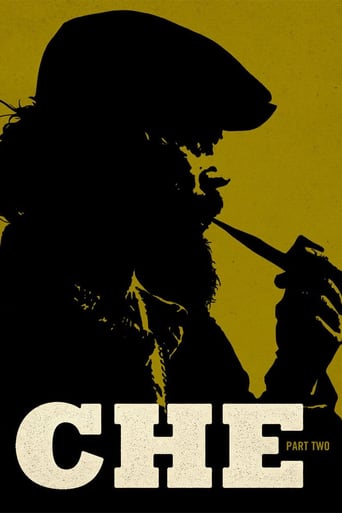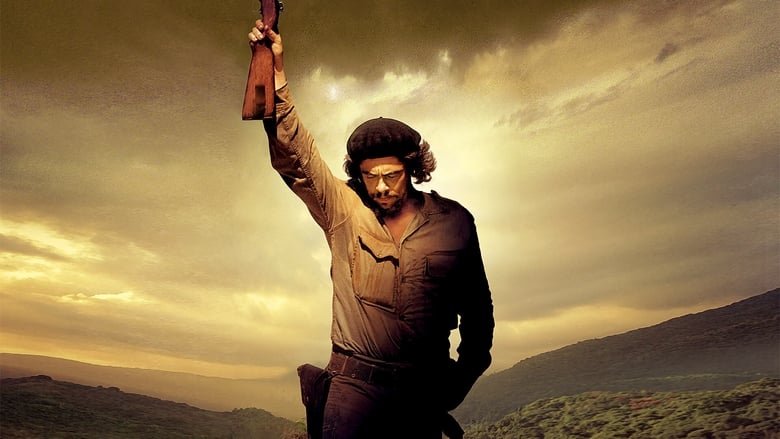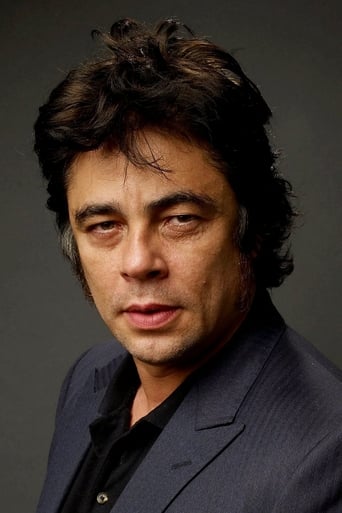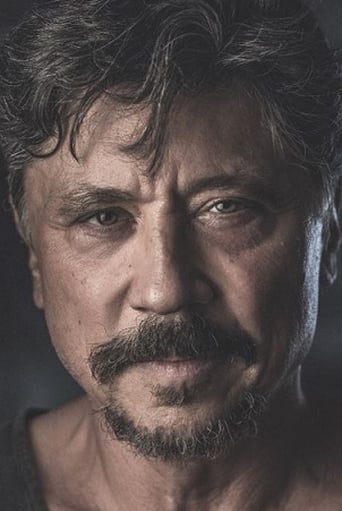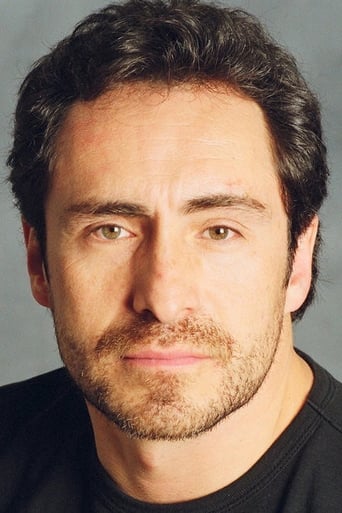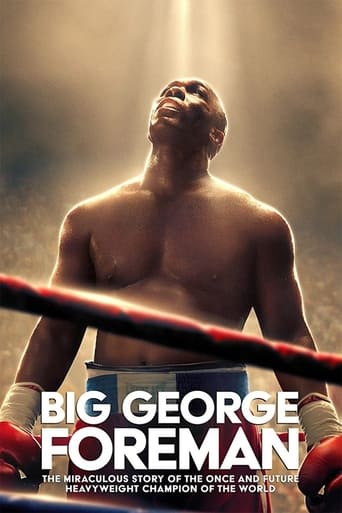Che: Part Two (2008)
After the Cuban Revolution, Che is at the height of his fame and power. Then he disappears, re-emerging incognito in Bolivia, where he organizes a small group of Cuban comrades and Bolivian recruits to start the great Latin American Revolution. Through this story, we come to understand how Che remains a symbol of idealism and heroism that lives in the hearts of people around the world.
Watch Trailer
Free Trial Channels
Cast


Similar titles
Reviews
I think this is a new genre that they're all sort of working their way through it and haven't got all the kinks worked out yet but it's a genre that works for me.
Close shines in drama with strong language, adult themes.
It’s fine. It's literally the definition of a fine movie. You’ve seen it before, you know every beat and outcome before the characters even do. Only question is how much escapism you’re looking for.
Great movie. Not sure what people expected but I found it highly entertaining.
While "Che:part one", the first installment of the docu-biopic about Guevara, shows us "Che" in a victorious - albeit dull - mood, here we have only an excruciatingly dull description of his failure and death. As in the first part, these tragic events are described without the slight tension or dramatic resonance.Again, we are given no insight whatsoever about the man and his motivations. If anything, Guevara's behaviour can only raise doubts about his soundness of mind. He had a family and a good life and yet decided to leave everything behind, for the sake of misguided ideas about permanent revolution.Just like in the first part, we are shown a documentary-like version of the long and unexciting ride during the ill-fated Bolivian guerrilla. However, we are not shown the six months Guevara spent in Congo, which would have explained why the Bolivian authorities insisted in stating to the press that Guevara was still there.Neither are we shown the disastrous results of the Congolese mission, which would have explained why Guevara seems so disconsolate and acting like a doomed man running towards the inevitable defeat.The whole mood of the film is doomed and gloomy. The pace is lethargic. It is hard to believe any of the guerrilla fighters believed they could actually win, considering the odds against them, even more so Guevara, given his considerable experience of the world.What we see here is a disappointed man engaged in what he knew was a suicide mission. The reasons for which remain unexplained.
I did not think it was possible to make Che's life appear dull and flat. This movie dragged to the point of boredom. Too long, too much unnecessary details especially some of the jungle scenes and the scenes were unable to capture the audience into the history. Also, the movie seems to be skewed towards the humanitarian Che versus showing both sides where he let power corrupt his very own cause affecting the lives of many young men who foolishly followed him. I was expecting a whole lot more and was sorely disappointed.Even the scene of his assassination was poorly played out, placing the camera angle in Che's eyes rather than allowing the audience see him fall from grace and into his untimely death. It lacked music and sound to give the movie more color and energy. It missed opportunities for rich story context as it builds up to what appears to be a potential scene of one of his people being shot and gets dismissed to depict the merciful Che. Hard to buy it given the controversial stories written of him from his own armies and witnesses. Overall, both movies part 1 and 2 were lackluster and needed a serious dose of energy that could have easily been interpersed. The overall interpretation did not leave me thinking about the controversial figure; it just fell flat.
Having just completed a viewing of both parts one and two of this lengthy film (and I really like lengthy films if they are good), I feel that a great many of the artists involved in its making, both cast and crew, did a lot of admirable work. Somehow, the whole thing held my interest fairly well; however, the big problem with the film lies with the long shot. The director chose to keep his camera at a considerable distance from his subjects, eschewing the occasional close-up altogether too often for my taste. This stylistic choice is symbolic of the biggest flaw in the film. We see the great ordeal that Guevara underwent for his beliefs, and the nobility of his unflagging commitment to his crusade clearly presented here. The problem lies with the emptiness of sitting through so much footage without ever being allowed enough "closeness" to the principal characters to get a feeling of connection with them. From what I have read, Che was a very complex, intelligent fellow. I would have liked to get to know him a little bit, but this film seemed to be so much about his deeds, and so little about what distinguished him as a person that I am surprised when some of the comments on this site suggest that their authors felt that some depth of character was conveyed. In the end, I feel as though I just saw endless hours of newsreel footage. It was a very chilly, impersonal experience. Noting that as gifted and capable an artist as Benicio Del Toro was not only the star, but the producer, I have to commend him for resisting all temptation to give his portrayal any of the kind of stylistic flourish that distinguishes star performers. Unfortunately, this contributed to the distance at which the whole movie keeps us from a feeling of personal involvement with the protagonist. If Soderberg's sole purpose was to convey a sense of the magnitude of Guevara's struggle and sacrifice, he succeeds in this. Sadly, I feel the whole vast production could have offered us a much richer human experience. As hard and inflexible as a revolutionary's commitment to his particular ideology, this movie builds up a brick wall which consistently denies us any intimacy with its subject.
The irony of watching the events depicted in this film is to see what Bolivia, as a country, achieved by somewhat peaceful means more than what Ernesto Guevara was trying to do in their name in the late 1960s. This Latin American revered icon of the guerrilla movement grossly miscalculated his adventure in the country, even at the time they were under a tyrannical regime.Mr. Guevara didn't count on the natives' natural distrust for any foreigner in their soil, which is apparent in the way it comes out in the second part of the Steven Soderbergh's saga. Not only was Guevara a foreigner to the natives, but the men that he brought from Cuba also stuck out because the way they spoke to the people they tried to enlist in the struggle. It becomes clear in the narrative, there was Cuban help by Mr. Castro for the project. The men he sent to accompany Che in his adventure were mostly Cubans who were asked by Guevara not to speak for fear their accents would derail his endeavor. Those fighters were ill prepared as well as the expedition proved to being ill timed. The second installment on the legend takes him to a hostile land. Che Guevara was an asthmatic man who was betrayed by the elements, as it is shown in the film. The same people he tried to inspire clearly did not get the message this Argentine revolutionary wanted to leave them with. Little by little most of the men he was able to bring to the cause were demoralized by a superior enemy, better prepared to fight their revolt. Ultimately, Guevara had to pay the price in a sacrifice that propelled him to the sainthood of all the world's leftist factions, as he became the face in the tee shirt that young people love to wear, not having a clue as to the spirit of the man, himself.Benicio Del Toro deserves credit for undertaking this project. Without him, the film couldn't probably have been made. For an actor, Mr. Del Toro couldn't even fake an Argentine accent, something that really is notable in the film. This being basically a Spanish language feature, it shows a cast of multinational actors, like Joaquim De Almeida, Franka Potente, just to name a few, whose accented voices don't sound real. It's curious that as we write this comment Bolivians are going to the polls in democratic fashion to elect their representative without fear, or interference from dictatorial regimes like the one Che Guevara left behind in Cuba.

